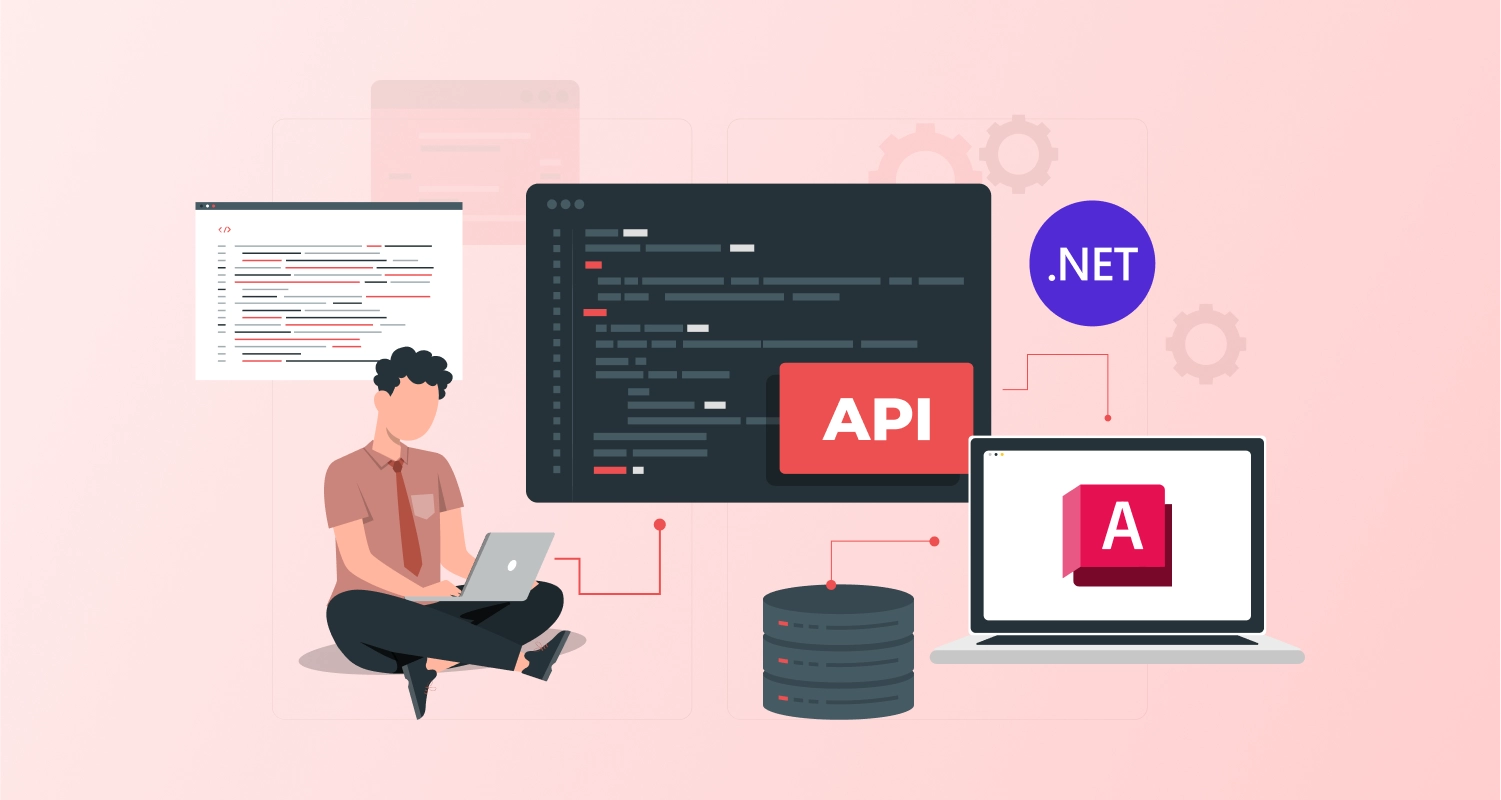Ask any employee who for the large for the day has to engage in repetitive tasks, he will obviously be pleased if some simple applications can take care of these boring tasks. Just think of a software application handling all the greeting messages and statutory reminders and alerts in an enterprise environment. In any enterprise now, a wide spectrum of applications are already in use. Undoubtedly a vast majority of them are third-party applications that businesses need to adapt.
While the third-party software apps are never perfect and come with a lot of shortcomings, enterprises often find it extremely cost-intensive to build a custom app for their purpose. This is exactly where low-code applications that can be built quickly and without too much developer input perfectly fits in. Low-code applications have arrived at the most credible alternative to the expensive and rigorous development process for custom enterprise apps. Think of a low-code development approach to build CRM App that caters to your specific business needs. Obviously, such an app will be better suited for your purpose while always delivering you a solution faster and with less cost burden.
This new approach to coding and app development can really bring in a never-before digital transformation into the enterprises. Keeping up with the rapid digital transformation is one of the key priorities for organizations. Low-code development only comes as a value addition to this strategy. In most companies, the vast majority of the working time of IT teams are spent on maintaining the current systems and software solutions. Naturally, the scope for building highly customized apps for the organizations by the in-house team is very low. On the other hand, building the same app through a developer team outside is quite expensive and time-consuming.
Low-code development allows the enterprises to build apps through the efforts and inputs of in-house developers and just because such apps are quicker to build and less time-consuming, the development time gets faster and the development cost becomes insignificant compared to the cost of a project carried out by third-party developers. The most important benefit of low code development is that even the so-called least experienced citizen developers can handle such development tasks.
How Low-Code Development Impacts Productivity

The biggest impact of low-code development is obviously experienced in the increase of productivity. Most IT thinkers and strategists now talk about agile development methodology to ensure iterative development process with continuous feedback and collaboration. Now, the low-code approach allows them to incorporate inputs from the citizen developers as well.
The broader development inputs consisting of citizen developers and experienced ones will help to deliver the promises of Agile methodology. This will clearly create opportunities for skilled developers to concentrate on challenging and complex development tasks while citizen developers can undertake simple and easy development tasks. In overall measure, this will give a sure boost to the productivity of enterprises.
Robust collaboration among disparate development teams is another big advantage of low-code development approach. For years, IT employees were responsible for development tasks and every aspect relating to digital transformation. This stiff segmentation allowed no scope for the marketers, operation professionals and employees of other verticals to take part in the development process. Now, thanks to this low-code development approach even these so-called novices can take part in the process and can actually turn up as citizen developers. This will also help to incorporate inputs from various domain expertise areas within an organization.
Lastly, low-code development approach will also help organizations to maintain optimum scalability of their business solutions. Just consider the MVP approach in mobile app development which is mainly about building a basic and bare minimum app equipped with basic functions that can get better and bigger over time as the feedbacks continue to arrive. Just like this low-code development approach can help a business building a very basic and elementary app and can always leave scope for further value additions over time. The app starting as a basic one can scale up capacity over a period of time.
Impact On The Web And Mobile Development
One of the gravest impacts of low-code development approach will be in the field of web and mobile apps. In most enterprises still, now, there is a huge communication gap between different systems. For example, to handle customer relationship there can be Salesforce or SAP, but the accounting and finance department of the same company can still run very outdated software. Within the same organizations where cutting edge ERP solution is being used employees can be seen working on the age-old excel spreadsheets on their desktop systems. Within an organization, we can see a variety of software applications including some old ones are running.
For organizations to initiate digital transformation it is now a challenge to make the whole process consistent and connected with robust enterprise solutions and automation tools. But initiating such transformation with new software solutions and automation tools is a stupendous task with tremendous impact on cost and resources. Instead, they can do better by building sophisticated and simple custom apps for different departments that can collaborate and communicate among themselves.
To meet the expectations of modern enterprises, we have now a whole array of no-code or low-code app development platforms that ensures keeping different processes in sync through the web or mobile interface. We now have a new breed of lean and lightweight enterprise mobile apps for different business tasks. Widely touted as the micro apps, these apps focused individually on single tasks can help business professionals, developers, experts and strategists pick an app from the enterprise suite as per their need. Mobile app development are already frequented with the huge demand micro-apps. The development of these web hosted and mobile-optimized micro apps became easier than ever thanks to the low-code development approach.
A Whole Array Of Competitive Benefits Are On Offer
Faster release of software applications gives businesses distinct competitive advantages and low-code development approach has come as a boosting factor behind this. Simply, releasing software before the competitor can help the company stay on stronger footing in the market. The traditional coding approach that always sticks to conventional wisdom about different enterprise niches, domains and areas of expertise areas often lack real insights about the latest problems that the professionals in a company are facing.
A software solution to be fully equipped with solutions to such problems, you need to invite and incorporate inputs from the citizen developers. This citizen developers find themselves part of the development process thanks to the low-code development approach. The cost and faster development benefits that we already talked about, will give outward competitive advantage to an enterprise, but when it comes to core value additions the low-code approach can incorporate domain expertise that traditional development lacks.
Thanks to low-code development an enterprise can also ensure far better customer service. As the focus on individual customer service is getting more traction than the typical “one size fits all” type of approach, building small customer-centric apps to address different pain points is increasingly getting popular. In a company that is already using acclaimed solutions like Salesforce, leveraging low-code development to build small and effective customer-centric functions can really make things better.
There are instances of enterprises whereby utilizing the strengths of Salesforce in cyber-security models, the experts allowed non-developers or citizen developers to configure the app environment as per the customer-centric needs. This incorporating of non-technical insights to configure solutions as per the end-users is a new approach championing the cause of low-code development. In the years to come, we can expect more enterprises to embrace this approach to infuse non-technical business insights with enterprise software solutions.
Another competitive benefit of low-code development is the capacity of assembling and prototyping apps at a faster pace. Thanks to the minimum coding required by this approach developers can easily build a function by assembling a few components or they can build a quick prototype of the applications.
Ensuring Good Business Practices
Just think of producing a quick app to tackle an emergency situation or a situation that demands quick proactive steps. For instance, when an event venue is overcrowded and filled a few times more than its regulated capacity, quick apps can be launched just to track the emergency exits and avenues to prevent a gate-crash situation.
Such solutions can also hold the hands of the Internet of Things based on connected gadgets and devices for more practical needs. For instance, recently an event management company developed an optical tracker equipped with sensors that track the incoming and outgoing traffic in the event venue. Now to track and visualize these data the event company also built a new app. Such apps are built within minutes with pre-built components and they mostly come with a single feature.
Conclusion
The whole field of no-code or low-code development is about to explode in a year or two as there are already two many development platforms allowing citizen developers without any prior development experience to build simple single-featured apps. The component-based tools that come with pre-built components helped to realize the promise of this new development approach.







